#false cognates
Text
I just found out the japanese for "cookie cutter" is クッキー型(kukkī kata). The kanji used here, 型 (kata) means "shape" or "form", and seems to come from an older word, 型抜き/抜き型 (shaped cutter/punch), which means that 型 is completely unrelated to "cutter" etymologically (a false cognate). It's just a coincidence that クッキー型 sounds almost identical to "cookie cutter"!
It's like that crazy case of the english word "dog" and the Mbabaram word "dog" having the exact same meaning and almost identical pronunciation by complete coincidence.

#japanese#langblr#japanese language#learning japanese#language#linguistics#false cognates#jimmy blogthong
466 notes
·
View notes
Text

The word rage has the same origin as rabies, but it isn't related to outrage in any way. In Latin, rabiēs meant "fury". In English, the disease was named rabies because its symptoms include irrational aggression. Outrage has a different origin: it stems from Latin *ultrāticum (excess). In recent times, however, its pronunciation was influenced by rage.
#historical linguistics#linguistics#language#etymology#english#latin#french#spanish#lingblr#catalan#old french#italian#portuguese#false cognates
133 notes
·
View notes
Text
you know what's fucked up?
that the words isle and island have absolutely no relation to each other
#etymology#linguistics#it fucks me up to this very day#cursed linguistic facts#false cognates#within the same single language!
82 notes
·
View notes
Text
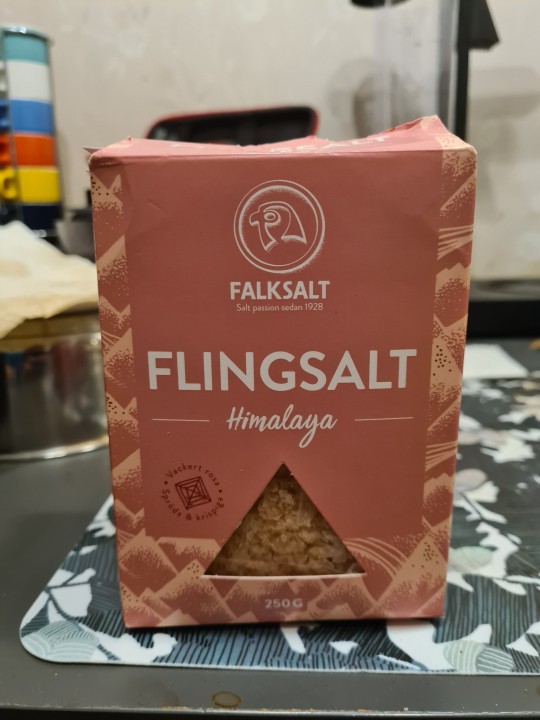
Another of those false friends that sometimes tickles me when I see it.
"Fling some salt around? Don't mind if I do!"
Just finished doing so on top of some chicken before it went in the oven, in fact.
That would indeed be "flake salt". Cornflakes are majsflingor. (And sometimes they're also good on chicken, which is totally beside the point.) I have a bad habit of accidentally throwing those around, too.
What can I say, I am a perpetual messy eater and cook. I'll fling anything around. I managed to get some of the salt in my lap trying to open it too.
5 notes
·
View notes
Text
Languages in Italian:
Italian: italiano
English: inglese
Spanish: spagnolo
French: franchese
German: TEDESCO
Me: ?????
3 notes
·
View notes
Text
I think my favourite part about learning russian is to notice when words sound eerily familiar to my hungarian ears but mean wildly different things.
Some of the funniest coincidences so far:
RU - HU - ENG
-------
боюсь - félek - i'm afraid
bajusz - усы - moustache
уборка - takarítás - cleaning (n)
uborka - огурец - cucumber
лук - hagyma - onion
luk (archaic) - дыра - hole
перец - bors - pepper
perec - крендель - pretzel
As to make things even more complicated, i love how our word for pepper - bors also sounds like the dish - борщ.
Another fun thing is when words remind me of reduplicated phrases in hungarian.
лить - önteni - to pour
Our onomatopoeic word (meaning it mimics a sound) litty-lötty does actually describe the splashing of water in a container.
шить - varrni - to sew
On the other hand sitty-sutty is a bit harder to explain. It basically means you are doing something so fast, by the time you say sitty-sutty, you are already done.
If anyone else have found this entertaining phenomenon between any other language, please let me know, it makes me smile that the exact same sounds make us think of different things based on our culture.
6 notes
·
View notes
Text
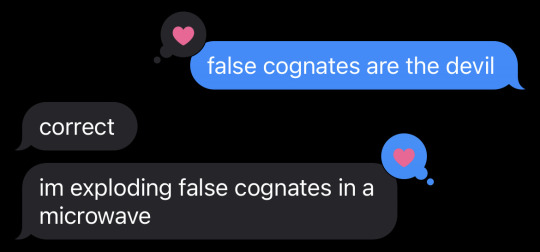
we’re so normal @redvelvetrootbeerfloat
7 notes
·
View notes
Text
Funky Norwegian/English things
some false congates
anger (English) = surhet (to be mad/angry = å være sur)
anger (Norwegian) = regretting (å angre = to regret)
dress (English) = kjole (Norwegian)
dress (Norwegian) = suit (English)
#English & Norwegian#language#i think it might have name but idk#ink.post#ink.info#false cognates#< thanks soup
3 notes
·
View notes
Text
False friends: beef x bife
Despite similarity "bife" and "beef" are not equivalent
"Bife" refers to steak, regardless of the meat source
Bife de frango = chicken steak
6 notes
·
View notes
Text
I've always found it silly how in Spanish they commonly say "fake friends" to refer to false cognates. Like, why teach your students to call them false friends when false cognates is more accurate and leaves no room for confusion. Both have 'false' on them anyway, why would you say 'friend' instead of 'cognate' when you're talking about... cognates. Who started this trend of calling them 'fake friends'.
3 notes
·
View notes
Text
Did you know that the word "emoji" and the word "emoticon" are actually not related at all in terms of origin?
"Emoji" and "emoticon" are what linguists refer to as "false cognates". These are words that appear to come from the exact same root but actually don't; they sound similar due to pure coincidence. They also mean the same thing or are very similar in meaning. "Emoticon" is an English portmanteau of "emotion" and "icon", and "emoji" is a Japanese compound word made up of "e" ("painting" or "picture") and "moji" ("character" or "letter").
For a really great article with more examples of false cognates, check out Starkey's page on the subject.
0 notes
Text
agita
noun
a feeling of agitation or anxiety
heartburn
According to Merriam-Webster, Agita comes from a dialectical pronunciation of the Italian word acido, meaning "heartburn" or "acid," from Latin acidus. Whereas agitate derives from Latin agere, meaning "to drive."
0 notes
Text
Tempo, temporary, temporal and (verb) tense all stem from Latin tempus 'time'. Tempus resembles time, but looks are deceiving: these words are not etymologically related. Time is distantly related to tide, the English cognate of German Zeit and Dutch tijd. These continental words still mean 'time', whereas the meaning of tide was narrowed. Here's more.
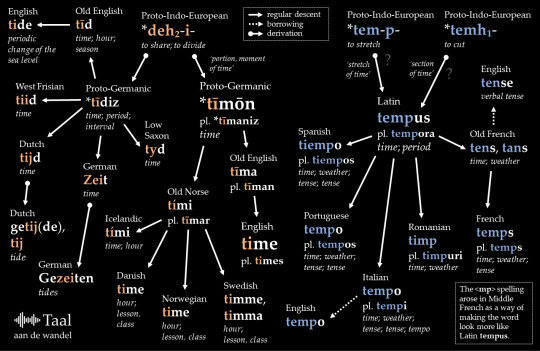
#linguistics#historical linguistics#language#etymology#english#latin#french#dutch#german#false cognates#portuguese#proto-germanic#proto-indo-european#spanish#old french#old norse#low saxon#frisian#icelandic#swedish#danish#norwegian#romanian#italian#lingblr
162 notes
·
View notes
Text

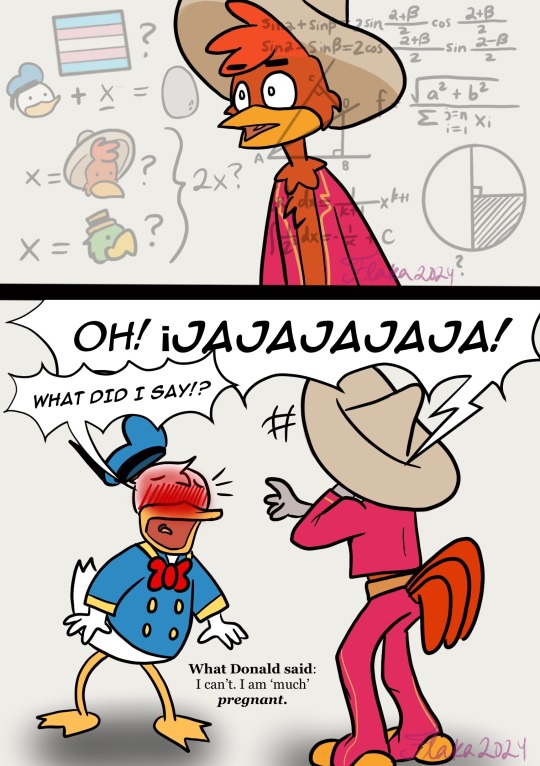
Panchito thought he was a father there for a second.
#donald duck#panchito pistoles#the three caballeros#duckverse#ducktales 2017#mis dibujos#three gay cabarellos#false cognates man#they'll get you#I like the idea of Donald learning Spanish and Portuguese and just a little too shy to practice with Panchito and Jose#he gets a little mixed up sometimes
341 notes
·
View notes
Text
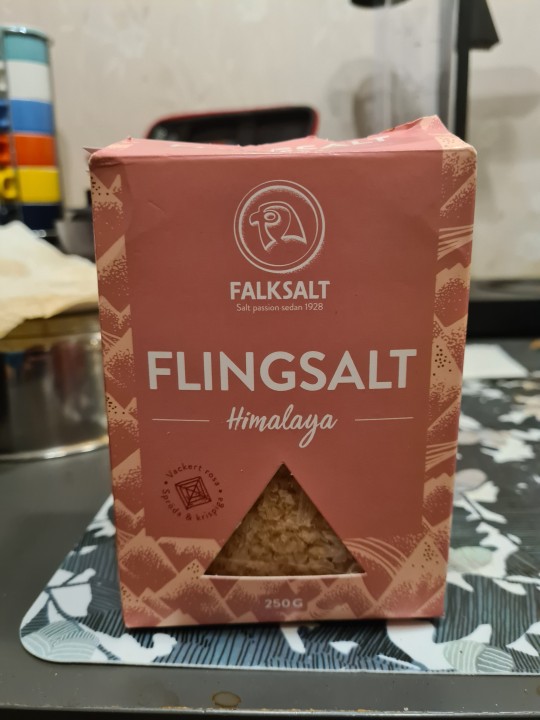
Another of those false friends that sometimes tickles me when I see it.
"Fling some salt around? Don't mind if I do!"
Just finished doing so on top of some chicken before it went in the oven, in fact.
That would indeed be "flake salt". Cornflakes are majsflingor. (And sometimes they're also good on chicken, which is totally beside the point.) I have a bad habit of accidentally throwing those around, too.
What can I say, I am a perpetual messy eater and cook. I'll fling anything around. I managed to get some of the salt in my lap trying to open it too.
2 notes
·
View notes
Text
"within this c(h)oral note"
fuck me UP, brennan
#wbn spoilers#worlds beyond number#i LOVE a false cognate#yes I'm posting trying to avoid processing what happens immediately after don't look at me
62 notes
·
View notes